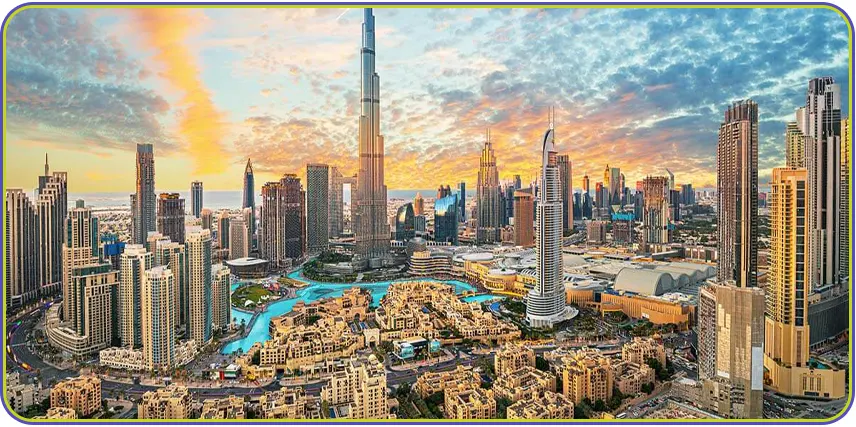Dubai, a city synonymous with prosperity and opportunities, is currently experiencing an unprecedented surge in its population. This rapid growth is exerting considerable pressure on the real estate sector, which is struggling to keep pace with the ever-increasing demand for residential properties.
The escalating need for housing is driven not only by the city’s booming population but also by the rising trend of residents opting to become homeowners in light of soaring rental rates. Despite the real estate industry’s best efforts, the supply of affordable and sufficient housing remains inadequate. Industry experts predict that this supply-demand imbalance may persist till 2024 or even beyond.
Read More About : Lahore Smart City
A Closer Look at the Numbers
In 2023, Dubai’s real estate sector successfully supplied 50,000 new residential units, in an attempt to accommodate the city’s growing population. However, this number falls short when compared to the rate at which the city’s population is expanding.
According to data from the Dubai Statistics Center, the city’s population grew by over 100,000 in 2023, reaching a staggering 3.65 million by mid-December. This population explosion is pushing the demand for residential properties to new heights.
Read More About : Dubai Transformative Effect Of Metro Rail Expansion On UAE’s Property Market
The Attraction of Dubai
The city’s population growth owes much to the influx of foreign workers, professionals, and investors, who are drawn to Dubai by its lucrative opportunities. These opportunities are leading to high investment returns and the launch of a diverse array of residency permits, further enhancing the city’s appeal.
Moreover, Dubai ambitious 2040 master plan is acting as a powerful magnet, attracting millions of people from around the globe. This grand vision of the city’s future is undoubtedly playing a significant role in driving its population growth.

The Impact on Property Transactions
The Dubai Land Department’s data clearly shows the surge in foreign visitors and corresponding property demand. In just nine months, property transactions surged by 33.8%, totaling a remarkable Dh429 billion in value.
Read More About : UAE Take Initiative The National Investment Strategy
The Effect on Property Prices
Recent years have seen significant price increases in the city’s waterfront properties, villa markets, and established communities. These areas are now almost fully developed, with very little land remaining for further development. Consequently, the demand for properties in these areas often outstrips the supply, leading to a steady increase in prices.
The Shift in Demand
However, of late, there has been a noticeable shift in the nature of demand. Buyers are gravitating towards cheaper locations, enticed by lower prices and the prospect of future investment growth. Areas such as Business Bay, The Greens, Jumeirah Village, Dubai Production City, Dubai Silicon Oasis, and Discovery Gardens are witnessing a surge in interest.
ValuStrat’s report suggests that robust economic fundamentals, optimism, and incoming population growth are driving this demand. Furthermore, the report notes that tenants are gradually moving towards homeownership rather than continuing to pay increasing rents.
The Future of Dubai’s Property Market
Despite the real estate market’s best efforts, the demand for new residential units continues to outstrip the supply. The situation is further compounded by the fact that although developers have announced the release of 100,000 new off-plan units for sale in 2023, these units will not be ready for occupancy until 2025-2027.

Allsopp & Allsopp’s Operations Director, Paul Kelly, forecasts a continued undersupply of residential properties for 24-36 months. He also emphasizes the need for large-scale development of commercial and residential properties to keep pace with Dubai’s ambitious plan to increase its population from the current 3.6 million to 7.8 million residents by 2040.
In conclusion, Dubai swiftly growing population presents significant future challenges for its real estate market. However, this scenario also presents numerous opportunities for both investors and developers. Success hinges on efficiently managing supply-demand dynamics and promptly addressing the city’s housing requirements.
Stay Connected For More Information : WALI REAL ESTATE






